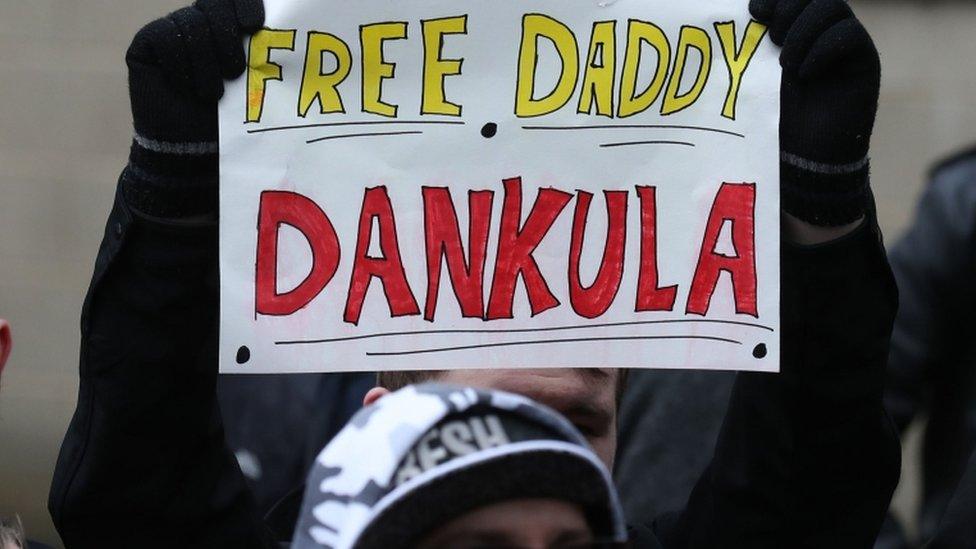Pug Nazi salute man raises appeal money via crowd funding
- Published

Mark Meechan's clip was viewed more than three million times on YouTube
A man who was fined for posting an online video of a dog carrying out Nazi salutes is raising money for an appeal.
Mark Meechan, 30, recorded his girlfriend's pug, Buddha, responding to statements such as "Sieg Heil" by raising its paw.
He was fined £800 at Airdrie Sheriff Court after being convicted of committing a hate-crime.
Meechan, from Coatbridge, North Lanarkshire, has raised more than £75,000 through an online appeal.
He had denied any wrong-doing and insisted he made the video, which was posted in April 2016, to annoy his girlfriend.

But Sheriff Derek O'Carroll found him guilty of a charge under the Communications Act that he posted a video on social media and YouTube which was grossly offensive because it was "anti-Semitic and racist in nature" and was aggravated by religious prejudice.
Meechan, who posts videos under the name Count Dankula, has now launched a crowd funding bid to cover the costs of an appeal, which has a target of £100,000.
On the page he says: "This conviction will be used as an example to convict other people over the things they say and the jokes they make, it sets a standard where courts will be able to willfully (sic) ignore the context and intent of a persons words and actions in order to punish them and brand them as criminals.
"This is the amount that has been quoted by my lawyer, the reason it has been quoted so high is my lawyer wishes to bring in top legal representatives to ensure that we have the highest chance of reversing the standard that this case sets, I cannot allow the two years of litigation I went through and having my life put on hold, to happen to anyone else.
"I will be 100% transparent with these funds, all bills in regards to the case will be made publicly available."
Meechan has defended his video, saying the whole point of the "joke" was "the juxtaposition of having an adorable animal reacting to something vulgar".
There was a demonstration outside court by protesters claiming the case went against the principle of freedom of speech.
- Published9 May 2016
